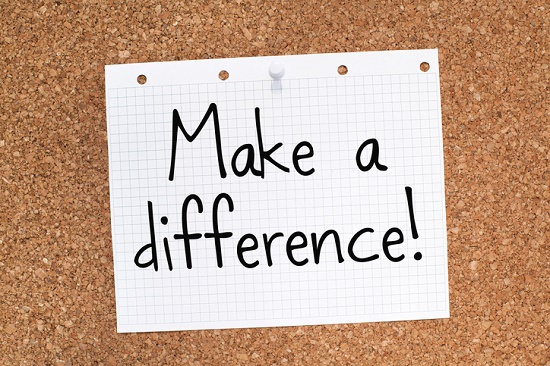
If you already wear hearing aids, you’ve already beat the odds.
In the United States, roughly 48 million people have hearing loss, of which 28.8 million could benefit from the use of hearing aids.
However, of those age 70 and older, only 30 percent of those who could benefit from hearing aids actually use them. For those age 20 to 69, it’s merely 16 percent.
That’s millions of Americans that are missing out on the advantages of improved hearing—advantages you understand first-hand if you wear hearing aids yourself or know someone who does.
So what can you do to elevate awareness about the benefits of hearing aids and the enhancements to the quality of life they offer?
Here are ten ways to become a hearing health advocate.
1. Talk about hearing loss on social media
Social media is a simple and efficient way to spread the message regarding the benefits of better hearing. Tell people about how hearing aids work, and how they’ve personally improved your life or the life of someone you know.
While people are typically skeptical of advertising, they’ll always be receptive to personal stories.
2. Volunteer to help those in need
Participate in a local activity like the Hearing Loss Association of America’s Walk4Hearing event, or arrange your own to increase awareness or funds for hearing loss.
Contact your local hearing loss chapter and find ways you can assist in the community. Visit the Hearing Loss Association of America to find a local chapter.
3. Donate your old hearing aids
If you’re ready to upgrade your hearing aids to a newer model, consider donating your old hearing aids to a local organization or hearing clinic.
Your donated hearing aids can be restored and provided to those who couldn’t otherwise pay for them.
4. Contribute to hearing health organizations
Consider donating to an organization that provides support the deaf and hard-of-hearing community, such as the Hearing Health Foundation, Hearing Charities of America, or a local institution.
These establishments use the donations to fund research, to deliver education and support, and to supply financial assistance to those who can’t pay for hearing aids or cochlear implants.
5. Start a petition
Most states do not require health insurance plans to cover the expense of hearing aids. Start a petition to submit to your elected representatives, asking them to recognize hearing health as a vital element of general health.
6. Help someone overcome hearing loss
Plenty of people accept as true the misconception that hearing aids don’t work, or they may even be denying they have hearing loss to begin with.
Help people to accept their hearing loss and understand that the technical innovations in hearing aids can help them regain their hearing. Help guide them through the steps of finding a hearing care provider, getting their hearing tested, and adapting to their hearing aids.
7. Advocate for the community
Hearing loop systems deliver sound straight from the sound source to the individual’s hearing aids. These can be found in churches, movie theaters, auditoriums, and universities.
Advocate for the addition of hearing loop systems in the most popular community venues.
8. Use hearing protection
Among the most effective ways to advocate for hearing health is by becoming a hearing health role model. That means safeguarding your hearing at very loud settings, like at live shows or sporting events, with customized hearing protection.
9. Get your hearing evaluated
If you don’t currently wear hearing aids, illustrate your devotion to hearing health by getting your hearing professionally tested. Share the process on social media and suggests that others do the same.
10. Proudly wear your hearing aids
Last, you can do your part to end the stigma of hearing loss by proudly wearing your hearing aids. Hearing loss is very common, similar to vision loss, and wearing hearing aids should be as typical and acceptable as wearing a pair of prescription glasses.